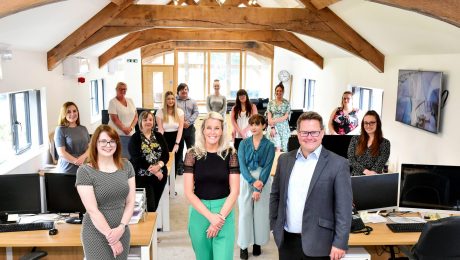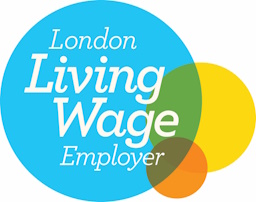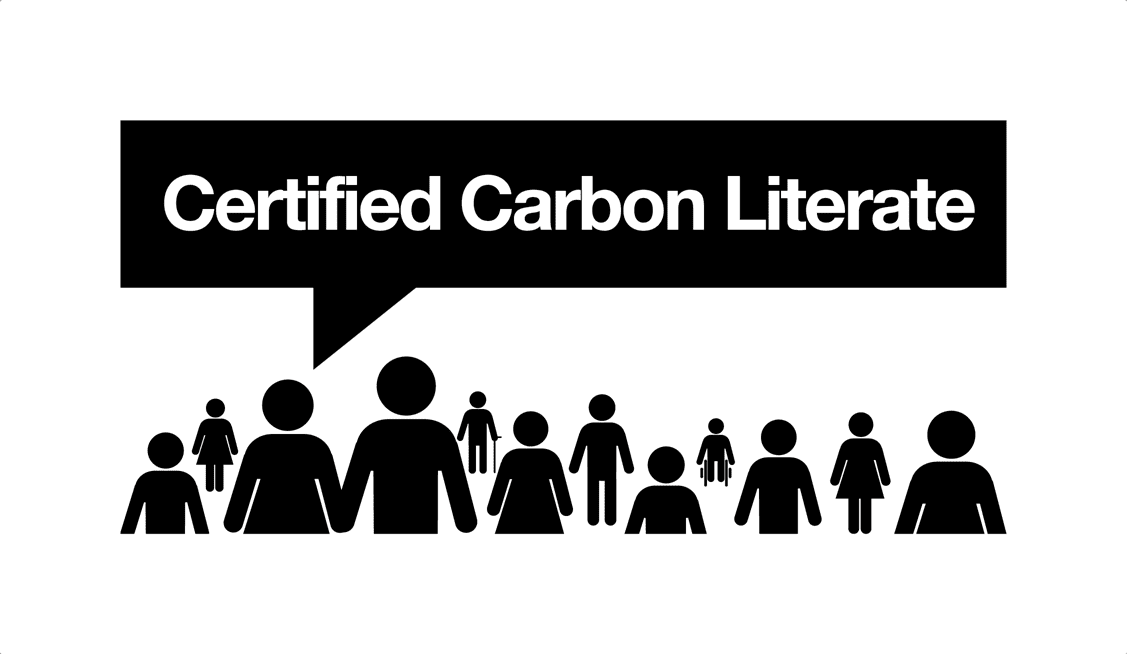Global Recycling Day: Stoke-on-Trent City Council
As a city council, we are committed to recycle where possible- it’s important we all take steps to protect our planet. As with many councils across the country, the pandemic has had an impact on our waste teams and on residents recycling habits. For example, some areas of the city have seen increases in side waste and poor recycling. However, we have carried out a number of recent interventions that are increasing and promoting recycling rates in Stoke-on-Trent. Waste key workers also heroically carried on collecting our rubbish while the world slowed down around them.
We have worked extensively with local partners, including community groups and educational establishments to address questions around waste service provision, raise awareness of recycling and arrange litter picks in the local area. Representatives from waste also attended a multi-departmental day in one of our local parks last September to showcase our services and vehicles. This event gave members of the public the opportunity to see our recycling trailer, allowing them to understand more about the importance of recycling and how it is carried out.
A contamination database (extracted from Bartec software) uses pivot tables that can be used to rank streets and areas from greatest to least contaminated recycling bins, or filter by highest to lowest type of contaminant in recycling bins. This allows targeted work by area or type of contamination.
By engaging with local communities, we have also improved waste collection and recycling rates. For example, a recent trial on several streets saw domestic properties have their 180l wheelie bins removed and replaced with 6 x 1100 litre containers for general waste and 3 x 770 litre containers for recycling. The containers were located at 3 agreed communal collections points. The trial project, implemented in November 2021, has been very successful and will continue for the foreseeable future.
A number of communication channels, including social media and email bulletins, have also been used to promote effective recycling to residents. We have informed residents on sustainable practices and how to reduce, re-use and recycle. This includes information on recycling Halloween pumpkins, keeping batteries out of household waste to prevent fires and a campaign for Recycling Week 2021.
There is always further work to be done to educate the public on how to recycle more and effectively to reduce contamination. As a city council we will continue to engage with residents and local partners to further increase recycling amongst our residents.
- Published in Uncategorized
Global Recycling Day: Staffordshire County Council
Did you know that each year in Staffordshire we recycle about 217,000 tons of rubbish? That’s the equivalent weight of over 16,500 school buses!
Our recycling is broken down into:
- 170,000 tons that gets recycled at home
- and 47,000 tons of recycling that is taken to the county’s household waste recycling centres.
Staffordshire’s Household Waste Recycling Centres take over 42 different types of materials such as paint, wood, textiles, large furniture, electrical items and batteries.
Learn more about what happens to your recycling and sign up to get FREE helpful tips about recycling straight into your inbox so you can live a greener more sustainable life. You can also follow the Waste Savvy Staffs page on Facebook to get daily tips.
Trade Waste and Recycling
Did you know…We offer a Trade Waste Recycling Scheme at our Household Waste Recycling centres? Simply speak to one of the site staff who will be able to check your materials and provide you with a quotation based on our trade waste fees and charges.
Next week on the 24th March at 2-3pm, Staffordshire Business Environment Network are holding a FREE talk all about Business Waste Management and Recycling Solutions in Staffordshire.
- Published in Uncategorized
Global Recycling Day: Newcastle-under-Lyme Borough Council
Guest blog by Jane Finnemore, Development Manager in the Recycling and Waste Services Team at the Borough Council.
The focus for the event this year seems to be on people who stepped up during the pandemic on the frontline, and our crews certainly did that. We were all very overwhelmed by the sudden rush of messages to crews from residents grateful to them for continuing to collect – seeing how much of an essential service they were suddenly. We’ve worked really hard to keep our crews safe, and of course, they’ve had their own fears and health worries, just like everyone else – but they carried on collecting, regardless. Of course, with so many people working from home or on furlough, waste volumes we were collecting from homes rose quite a lot. We did our best to support our local business waste customers, too, as it was clear that local business people were under incredible stress in such a period of uncertainty. We’ve been delighted to welcome so many of those customers back.
I think some of the biggest heroes of the pandemic have been our residents. In a pretty scary situation and unfamiliar new ‘normal’ they set about decluttering their houses into our various collection services, and then embraced our new recycling service – launched early, during the pandemic. We’ve increased our recycling tonnages, and many people who found the previous service a bit complicated are now using it, too. The new recycling service is much simpler to use, and residents are certainly reflecting that. When we were able to restart our food waste collections residents quickly got back in the habit, with new users doubling the tonnages we collect. Our residents really have the recycling habit, and I think it’s our job to keep explaining why it’s so important. We have a tiny contamination issue here, much less than many neighbouring councils, so we know that our good relationship with residents and simple service is working, and that know how important it is to get things right.
Recycling saves materials from being wasted and gives them multiple new uses. That’s so important for saving resources, reducing carbon, and getting us to net zero. We really are in a climate emergency, and everything we do to promote environmental sustainability is crucial. We want to make it easy for everyone to do that from home. I’ve never lost my excitement that the things I put into my recycling bin at home can turn into renewed versions of themselves, or something totally different, and while that’s usually here in the UK, it can be somewhere else in the world, too. Things we don’t want anymore are resources that prevent mining, extraction, deforestation and pollution here and abroad – they are raw materials with a whole range of potential new uses. It’s our job at the Council to convey that potential to residents, and make it easy for them to do their bit.
The waste industry is in exciting times, waiting for the DEFRA consultation results which will give us an England-wide strategy that will shape collections and new statutory responsibilities, not just for us as a council, but for businesses, too. We’ll have a lot to plan and deliver. The next few years will see transformative changes, and it’s brilliant to think that we’ll be able to start working with businesses locally on the same journey we’ve embarked on with our residents.
- Published in Uncategorized
Michelin development helps Staffordshire landscape business bloom
Staffordshire landscaping and lifestyle business Planterra is laying the groundwork for future growth with support from Michelin Development. The company has built a landmark office and is creating 15 new roles with a low-interest loan from the tyre company.
Based in Barlaston, the company’s new headquarters has been constructed in a contemporary blend of glass and oak, to reflect the business’s skillset and connection with the outdoors. The building now houses Planterra’s expanding portfolio of lifestyle and horticultural brands, which includes Blue Iris Landscapes, OakHouse Professional, ProHort, Japanese Knotweed Expert and The Oak Pot Company, as well as the new garden machinery repairs division Barlaston Toolshed.
Jason Harker, who oversees the group’s businesses in the role of managing director, founded the company 25 years ago after leaving school. He said: “The loan from Michelin Development has been invaluable to us. It has helped us to get the new headquarters off the ground and without that support we would not have been in a position to create the building or develop the new roles. The loan comes with a very low-interest rate, it was a straightforward process to apply and we have also had plenty of assistance from the Michelin Development team.”
Small and medium-sized enterprises located in and around Newcastle-under-Lyme, Stoke-on-Trent and the Staffordshire Moorlands can apply to Michelin Development for unsecured, subsidised loans of up to £50,000, as well free expertise. Successful applicants will have shown they have the potential to create high-quality, long-term jobs, employ fewer than 250 people currently, and be involved in manufacturing, engineering or business-to-business services.
The loans can usually be used to attract additional funding from other sources.
Carol Hopkins, co-ordinator for Michelin Development in the UK, said: “Planterra is a great example of how we can offer the extra support to unleash really significant growth potential. We need entrepreneurs and high-growth companies who want to invest in the future and create local jobs to contact us. There are new and existing businesses across North Staffordshire that are ready to grow – we want to help them reach their potential. We have the funds in place, but we need to receive applications to deliver this support and investment in our community.”
Michelin Development is backed by a steering committee, which includes Staffordshire Chambers of Commerce, NatWest Bank, Staffordshire Business Innovation Centre and Stoke-on-Trent City Council Economic Development Unit.
Businesses applying for financial support should have no outstanding creditors or repayment arrears and cannot use Michelin Development funding to pay off other loans.
- Published in News
Staffordshire Chambers appoint new Deputy Chief Executive
Chris Plant will be joining Staffordshire Chambers of Commerce full time from 14th March as deputy chief executive.
Chris has been working at the Chambers on a part-time basis since 2014, heading up the membership, marketing and events teams. During this time, Chris has also been divisional director for Cannock Chase and Burton & District at Greater Birmingham Chambers of Commerce, a position he has held for the past ten years.
Chris started his career as an apprentice marketing and events coordinator for Southern Staffordshire Chamber of Commerce in 2008, having also previously worked in business support for Lichfield District Council.
After moving to Greater Birmingham Chambers of Commerce as marketing manager, Chris was approached for a senior role as divisional director for both the Cannock and Burton Chambers, a position he has dedicated himself to for the last 10 years.
Chris said: “I am, and have always been, Chamber through and through. The Chamber has invested in me, and I am privileged to have been offered a position, I just couldn’t refuse, as deputy chief executive at Staffordshire Chambers of Commerce.
“The last few years have been the toughest in decades for business. During my time working in the Chamber movement, I have seen businesses face a financial crisis, the division and uncertainty caused by Brexit and the pandemic.
“Business support has never been more crucial, and Chambers play a huge, understated role in bridging the gap between business and the government as well as providing world class services and support.
“It was a career highlight and an honour to be a part of the team at Staffordshire Chambers that was named Chamber of the Year at the British Chambers of Commerce’s annual Chamber Business Awards 2021.
“I am now looking forward to working with Sara Williams and the Staffordshire Chambers team, supporting Staffordshire’s great businesses and strengthening our economy.”
Sara Williams said: “Chris and I were both lucky enough to have worked for a great boss, Peter Ralphs, from whom we both learned a lot. Peter was the chief executive of both Liverpool and South Staffordshire Chambers.”
“He has been a real asset to the Chambers these past few years and I am delighted he accepted the offer to come to us on a full-time basis. Chris already has the respect of his team and our members and his passion for supporting business will be a great asset.”
- Published in News
Policy Spotlight: Fuel Prices hit a record high and impact on businesses
Last week, in response to the Russian invasion of Ukraine, Prime Minister Boris Johnson called for a step-by-step move away from the import of Russian fuel. This means that the UK has mirrored the decisions made by the US to phase out the import of Russian oil and oil products by the end of 2022.
As the price of petrol increased by 8p in just one week, now standing at £1.61 per litre, and the price for diesel hit £1.70 a litre, businesses across the nation have expressed their concern at the mounting pressure that increases to energy and fuel has put them under.
Russia is the world’s second-largest crude oil exporter behind only Saudi Arabia, and as many European countries have imposed economic sanctions on the country, there are fears that Vladimir Putin could respond by limiting supplies. Whilst the UK only imports around 5-6% of gas from Russia, rising global gas prices have led to the current UK energy crisis. It is important to note that although our supply of gas is currently unaffected, the price that consumers are paying has led to an increase in their total energy bills.
MP Robert Halfon commented on the situation regarding fuel prices stating that the surge in prices has meant that Hauliers are paying £120 more since February 2021 and white-van men and women are spending an extra £25 every time they fill up.
Sara Williams, CEO of Staffordshire Chambers of Commerce, said: “With the ongoing crisis in the cost of living and with the inflation expected to reach 8 per cent later this month, it is almost inevitable that the decision to phase out the Russian import of oil will have a knock-on impact on businesses, causing them to struggle to cope.
“Many businesses felt a sense of relief when the remaining Covid restrictions were removed and hoped that this would be the first step in the route to returning to normality. However, the rise in inflation, interest rates and fuel and energy prices has caused some businesses to raise their concerns regarding financial stability over the coming few months.
“Despite these issues being of great concern to both businesses and communities, it is heartwarming to see the way that so many people have united to stand against dictatorship and have supported the people of Ukraine.”
As the government is providing domestic support on energy bills, we now urge them to provide the same support for businesses as well as lowering fuel duty or VAT in order to help both businesses and communities across the nation cope with the increasing financial pressures.
Lowering Carbon Emissions
Chambers across the network are in full support of the government’s plans to cut carbon emissions by 2030. Over half of all commuting trips are made by car in England alone, generating 11 million tonnes of CO2 emissions every day. Businesses and employers have a key part to play in facilitating zero-carbon commuting within their teams, offering alternative options such as the cycle to work scheme, hybrid or remote working and salary sacrifice schemes for electric vehicles.
As much as we are all so relieved to see the end of Covid restrictions, the pandemic has shown that as a society we have the propensity for change, and this is a great time for us to cut down on carbon emissions whilst being economical.
For any business queries or issues regarding the recent surge in fuel costs, get in touch with rhouda.elalfy@staffordshirechambers.co.uk, alternatively, call 01782 202222.
- Published in News
Sara’s Blog: Conflict in Ukraine and UK energy bills
Unfortunately, the situation in Ukraine is rapidly turning into a catastrophe. The aggressive nature of the Russian invasion is causing a terrible loss of life and displacement of potentially the largest number of people in Europe since World War II.
If there is a positive to be taken from this horror, it is that the West and many major corporations now seems resolved to defund and cripple the Putin war machine by increasingly punishing sanctions and isolationist actions.
The US has announced a complete ban on Russian oil, gas and coal imports after Ukraine called for sanctions to be expanded. Prime Minister Boris Johnson has also announced that the UK is to phase out Russian oil by the end of the year, and the EU is reducing its Russian gas imports by two-thirds. The UK government says this allows enough time for them to find alternative supplies.
We only currently import around 5-6 percent of our gas from Russia, despite its status as the second-largest gas producer in the world (contributing 17 percent to global gas output in 2020). However, the current energy crisis in the UK is being driven by rising global gas prices and the volatility in this market will continue to affect UK energy costs.
Many European nations have agreed that increasing the use of renewable energy is one of the solutions to reliance on Russian gas. The PM has confirmed that the UK will ‘cease the dependence on Russian oil and gas that for too long has given Putin his grip on western politics’. The UK will therefore have to reduce our demand for gas or replace it with other sources. In the near-term, our reliance on Liquified Natural Gas (LNG) is likely to increase but increased global competition for this resource will drive costs up.
Energy bills in the UK are therefore likely to continue to rise sharply as a direct result of the conflict in Ukraine and the sanctions imposed on Russian exports.
The UK government has been clear that investment in renewable energy is key to mitigating against price rises. We are already a global leader in producing renewable energy – continuing to invest in home-grown energy will shield businesses and households from further price spikes.
What can businesses do?
Since the onset of the energy and gas crisis, the concept of increased energy efficiency has received additional attention as a means of reducing gas (and energy consumption), thereby reducing bills. Reducing the amount of energy consumed will be vital for businesses in the immediate future. With gas prices set to continue rising, this is likely to be the most effective way of lowering bills for some time.
Here are some other points to consider:
• Alongside considering switching to a renewable energy tariff, businesses may wish to consider investing in greater energy efficiency on their premises as a way of reducing their energy bills.
• Due to the high cost of gas, it is likely that from April, it will be cheaper to run an electric heat pump than a gas boiler for the first time.
• Other measures such as cavity wall and loft insulation reduce gas demand, reducing bills.
• Upgrading a building from Energy Performance Certificate (EPC) band D, the average rating in the UK, to band C, reduces heat demand by an average of 20 percent per building.
• Upgrading all buildings to band C would cut gas demand by seven percent and net imports by five percent.
The British Chambers of Commerce (BCC) have produced a list of 10 things businesses can do to lower their emissions. Taking steps to improve your energy efficiency will help to do that, while also reducing operating costs.
At the end of the day short to medium term financial hardship is nothing compared to the suffering of millions of innocent Ukrainians.
#StandByUkraine
If you want to talk to us about any business issues, including funding, you can call our switchboard on 01782 202222 or call the Stoke and Staffs Growth Hub Helpline on 0300 111 8002 or email: info@staffordshirechambers.co.uk
Chamber offering free export declarations for goods leaving the UK for humanitarian purposes
Given the terrible situation in Ukraine we at the Chamber are keen to do all we can to support the humanitarian aid effort.
The Government and International Aid Agencies, including the Disaster Emergency Committee (DEC) are urging people for financial contributions because supply chains are already tight, charities can buy in bulk and get the correct type of aid to people more quickly by buying in the countries where the refugees are located.
However, we appreciate that people are wanting to take ‘aid in kind’ (blankets, food, clothing..etc) to the Countries surrounding Ukraine. Therefore, the Chamber Network will be offering FREE export declarations for goods leaving the UK for humanitarian purposes. Click Here for information on the free Customs Declarations
We are proudly flying the Ukrainian Flag in our Member’s Lounge and our thoughts and prayers are with the people of Ukraine.
Policy Spotlight with Rhouda: UK economic growth expectations for the year
The British Chambers of Commerce has downgraded its expectations for UK GDP in 2022 from 4.8% to 3.6%. With rising raw material costs, the increase in the energy price cap, the reversal of the hospitality VAT cut, and upward pressure on energy and commodity prices from the impact of Russia’s invasion on Ukraine, the CPI inflation is expected to increase to a peak of 8% in Q2 2022.
It’s also expected that UK inflation will remain higher for longer due to the impact of the invasion alongside rising raw material costs. Further to this, UK interest rates have been projected to double over the course of the year from 0.5% to 1%, however, with the current inflationary spike, higher interest rates are expected to do little to curb further increases in inflation.
Sara Williams, CEO of Staffordshire Chambers of Commerce, said: “The latest BCC forecast has demonstrated a significant deterioration in the UK’s economic outlook. Businesses are juggling rising cost pressures, higher national insurance and corporation tax rates which will continue to weigh down on their investment plans. This also comes at a time when some businesses are still struggling to export goods due to the post-Brexit trade friction.
“Whilst the remainder of Covid restrictions are due to end next month, the impact of Covid restrictions are still affecting businesses, alongside Brexit and the invasion of Ukraine which have all led to the creation of an increasingly unbalanced economy. Such economic imbalances will undoubtedly leave the UK more exposed to economic shocks. The projections announced for the UK economy have highlighted the critical challenges facing businesses, communities and households and it is essential that the Government acts quickly to support both UK businesses and the wider economy.”
With the Chancellors’ Spring Statement due to be announced later this month, Staffordshire Chambers in conjunction with Chambers across the network have urged the Chancellor to delay the National Insurance rise, as well as introduce a temporary energy price cap for smaller firms to protect them from the increase in energy prices. We also urge the government to commit to no further policy measures that will increase costs for businesses for the remainder of this parliament.
It is now critical that the government’s Supply Chain Advisory Group and Industry Taskforce continue to work with firms to deliver practical solutions and ease the supply and labour shortages that have continued to drive the upward pressure on businesses.
If you want to talk to us about any business issues, you can call our switchboard on 01782 202222 or email: rhouda.elalfy@staffordshirechambers.co.uk.
- Published in News
Sara’s Blog: International Women’s Day 2022
Tuesday 8th March is International Women’s Day, a worldwide event that celebrates women’s achievements – from the political to the economic, and the social. But it is so much more than a celebration, it is a reminder that bias, prejudice and inequality exist, and the burden falls on women. It is an opportunity to reaffirm that we will fight for equality for all.
It is so poignant that the day has its roots in events in New York in 1909 when a Ukraine-born suffragist named Clara Lemlich demanded better pay and conditions and shorter working hours for the female workers at the Triangle Shirtwaist Company in New York. Despite intimidation and physical harassment almost 20,000 garment workers went on strike in February 1909. The following year, The Socialist Party of America announced the first National Women’s Day in honour of these workers and an international movement was born.
A 100 years later it is still needed. How? We have equality legislation, and we have movements that advocate equal rights for many different identities. Women are 52 percent of the population and are still not getting the basics –the World Economic Forum’s (WEF) Global Gender Gap Report 2020 has predicted women and men will have equal pay in 257 years – an increase from the 202 years forecast in 2018.
As an individual, a businessperson and as someone who has always considered myself a feminist, I feel we can do more. Visit internationalwomensday.com for ideas on how you can fight for women’s rights and support your colleagues.
Until I once described some of the experiences I have had as a woman to a friend, I had thought that I was lucky and hadn’t experienced any difference or been affected by my gender. Then I realised that what I saw and felt as normal, was only normal because I was a woman, and a man would never stand for it. And I have always felt lucky. I saw that I was as guilty of not calling out bias, prejudice, and mistreatment, even for myself, and so how much worse is it for women who are not so lucky with their lives. It reinforced my resolve to fight for women’s rights.
The theme for this year’s International Women’s Day is #BreakTheBias which centres around calling out gender bias, discrimination and stereotyping each time it occurs.
Whether deliberate or unconscious, bias makes everything unfair. And bias against women is hardwired into our economy and society. Read Invisible Women | Caroline Criado Perez for a brilliant, life-changing analysis of how the world sees women and how this affects everyone in ways of which you are unaware.
I have tried to support and encourage women in the workplace. We work with women across the globe (Endorse the Women’s Empowerment Principles | UN Global Compact) through the Chambers’ international network and we are working to have equal numbers of men and women at events, on our governance bodies, as speakers and across our programmes. This is a start.
This month we will also be making sure that we are working to deliver support on Un SDG Goal 5 Gender Equality and I am really proud of the free event we are running #BreakTheBias event for International Women’s Day at Vale Park on Tuesday 8th March.
The event will feature influential and informative speakers including the teacher, author and charity founder, Charlie Beswick.
Charlie founded the ‘More Than a Face’ charity that helps raise awareness of facial disfigurement and promotes understanding, acceptance, and inclusion. Charlie’s book, ‘Our Altered Life’, is an account of how she came to terms with a life she never expected and went on to feature on Sky TV, Good Morning Britain and in the national press.
Head of Leadership, Learning and Talent at the Ministry of Defence Lianne Al-Khadi BEM Lianne ensures that over 24,000 military and civilian personnel have access to the tools they need to reach their goals. Lianne was awarded a British Empire Medal for her work during the pandemic, organising the production of 3,500 items of protective equipment for NHS and care workers.
Staffordshire born Barbara Anne Griffiths was made redundant when Dairy Farmers of Britain went into receivership. She used the opportunity to launch Dairy Link – a service to help small dairies and milkmen be part of big tenders for local authority and school milk contracts. Dairy Link now supports hundreds of milkmen across the country. As an active Milk4Life campaigner, she is contributing to working to end to child food poverty.
The event will also highlight our Boosting Women in Business programme available to all women looking to transition into the world of self-employment. Our next Boosting Women in Business cohort is set to launch on 28th April. Find out more.
If you want to talk to us about any business issues, including funding, you can call our switchboard on 01782 202222 or call the Stoke and Staffs Growth Hub Helpline on 0300 111 8002 or email: info@staffordshirechambers.co.uk
- Published in News











